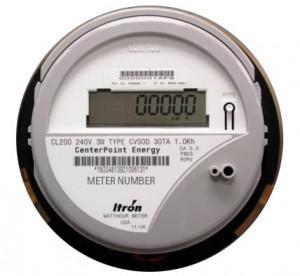 For today’s company spotlight, I wanted to look at smart meters.
For today’s company spotlight, I wanted to look at smart meters.
Smart meters have been in use since 2006 in the United States and have gained wide penetration in some areas and caused backlashes in others. In the near future many utilities will be switching their customers over to this technology. So what exactly are smart meters, why are they sometimes controversial, how do they help consumers and utilities save money, and who is the industry leader in the field?
A smart meter is a device that collects electric consumption data from a home or business and communicates that data back to the utility. This communication is accomplished by the use of Radio-Frequency (RF) technology. Smart meters provide several advantages to the customer as they allow the customer to monitor their energy use in real time and allow for the customer to receive real versus estimated electric bills. For the utilities there are several major benefits as well. Primary among these is that smart meters allow the utility to adjust its billing policies to entice customers to use electricity during non-peak hours. This is vital as during peak electric usage periods the utilities must bring on-line less efficient energy methods or purchase power from other entities. Both of these methods increase costs to the utility. Incentivizing customers to adjust their energy use to off-peak hours helps the utilities keep costs down and potentially produce electricity using more environmentally-friendly methods. A good example of this approach can be seen with TXU Energy’s Free Nights program which is designed to encourage customers to change their electricity usage habits and as a reward not be billed for electricity usage between 10 PM and 6 AM, non-peak hours for the utility. Another use of smart meters is that they allow utilities to more quickly respond to power outages or problems as they are now receiving almost real time information from customers.
The level of penetration of smart meters in the United States varies dramatically by region of the country. PG&E just recently announced that it had installed its 9 millionth unit in Northern California while other areas of the country have almost no units in place. Current levels of penetration in the United States are estimated at 35%. In some areas there has been a backlash against smart meters due to health concerns regarding the RF technology used to communicate between the readers and utilities as well as concerns about customer privacy. Although the use of RF technology has been approved and deemed safe by the Federal Government, fears still remain.
The global leader in the smart meter industry is Itron (Nasdaq: ITRI) with 8,000 customers in 130 countries. With energy consumption continuing to grow and regulatory initiatives aimed at increasing energy efficiency being put in place around the world, the market for smart meter technology seems destined to continue to expand. Per Itron estimates, there are 2.8 billion meters in use around the world with only approximately 10% being smart meters. One significant risk facing Itron is that they are almost totally dependent on utility industry capital spending. The recent slowdown in the global economy has had a direct effect on Itron’s fortunes as such slowdown reduces the industry’s capital spending. However, with its strong financial results and healthy cash flow, Itron seems well positioned to take advantage of the growth in smart grids and smart meters in the future.
Disclaimer: This article is intended to be informative and should not be construed as personalized investment advice. You are responsible for your own investment decisions.
Disclosure: The author has no position in Itron and no plans to initiate a position in the next 72 hours.
Image Source: whatisworking.com

